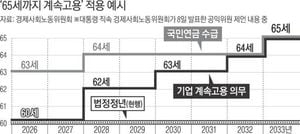On May 7, 2025, a significant verdict was delivered in the case involving WhatsApp and NSO Group, a notorious foreign spyware merchant. This ruling marks a pivotal moment in the ongoing battle for privacy and security in the digital age. The jury's decision to hold NSO accountable and order the company to pay damages serves as a critical deterrent against illegal acts targeting American companies and the privacy of individuals.
The case stems from a 2019 incident when WhatsApp engineers detected and thwarted an attack by NSO using its Pegasus spyware tool, which aimed to compromise over a thousand users, including human rights activists, journalists, and diplomats. In response to this breach, WhatsApp collaborated with Citizen Lab to investigate the attack and inform those who were targeted, ensuring they understood the risks and could take steps to secure their devices.
This trial was groundbreaking as it exposed the inner workings of NSO's surveillance-for-hire business model, which operates largely in secrecy. The Pegasus spyware is designed to covertly infiltrate mobile devices, allowing the extraction of sensitive information from various applications. According to WhatsApp, the spyware can collect everything from financial data to personal messages and even activate the device's microphone and camera without the user's consent.
While WhatsApp successfully blocked the specific attack vector that exploited their calling system in 2019, the trial revealed that Pegasus had multiple other methods for compromising devices. NSO admitted to investing tens of millions of dollars annually in developing various malware installation techniques through instant messaging, web browsers, and operating systems, demonstrating the ongoing threat posed by such technologies.
WhatsApp's commitment to user privacy is evident in their response to the verdict. The company plans to pursue the awarded damages from NSO and intends to donate these funds to digital rights organizations dedicated to defending individuals against similar attacks worldwide. Furthermore, WhatsApp is seeking a court order to prevent NSO from ever targeting their platform again, a move aimed at reinforcing their stance against spyware.
In addition to the verdict, WhatsApp has made strides in transparency by publishing unofficial transcripts of deposition videos shown in court. This initiative aims to provide researchers and journalists with valuable insights into the threats posed by spyware, fostering a broader understanding of the implications for digital security.
As the digital landscape continues to evolve, organizations are increasingly turning to artificial intelligence (AI) to enhance business processes and streamline operations. However, the integration of AI into business practices also raises significant privacy concerns, particularly regarding how customer data is handled. On the same day as the WhatsApp ruling, discussions about AI’s role in business highlighted the necessity for organizations to proactively address these privacy issues.
Experts recommend seven best practices for organizations to mitigate privacy risks associated with AI: data minimization, encryption, anonymization, explainable AI, compliance checks, access controls, and governance frameworks. These practices are essential for ensuring that AI systems operate within ethical boundaries while safeguarding sensitive information.
Among the critical privacy concerns that businesses must address are data breaches, data misuse, black box models, lack of transparency, AI bias, and compliance risks. For instance, AI systems often process sensitive information, making them attractive targets for cybercriminals. A single data breach could expose millions of records, resulting in identity theft and reputational damage.
Moreover, the development of AI tools involves multiple stakeholders, which increases the risk of data misuse. Unauthorized access to training data, for example, could lead to private information being sold for customer profiling. Additionally, many AI systems operate as black boxes, obscuring their internal decision-making processes. This lack of transparency complicates audits and can erode user trust.
To navigate these challenges, organizations are encouraged to adopt a minimal data collection approach, ensuring that users provide explicit consent regarding how their data is utilized. Encrypting all communications between users and AI systems is also crucial to prevent unauthorized interception of data exchanges.
Furthermore, sensitive data should be anonymized through techniques like data masking and tokenization to protect individual identities. Implementing explainable AI techniques can enhance understanding of how AI models make decisions, thereby fostering trust among users.
Compliance with regulations such as GDPR and CCPA is another vital aspect of AI governance. Organizations must conduct regular audits and maintain clear documentation of their data practices to demonstrate compliance and due diligence.
Access to AI systems should be restricted to authorized personnel only, with robust access controls in place to prevent internal misuse of data. Establishing a comprehensive AI governance framework is essential for defining roles, responsibilities, and procedures for AI implementation, including incident response plans for data breaches.
As the landscape of digital privacy and security continues to evolve, the verdict in WhatsApp's case against NSO Group serves as a reminder of the importance of accountability in the tech industry. Simultaneously, the ongoing discussions surrounding AI highlight the need for organizations to prioritize privacy and ethical considerations as they adopt new technologies. The intersection of these two narratives underscores a critical moment in the fight for digital rights and user protection.




